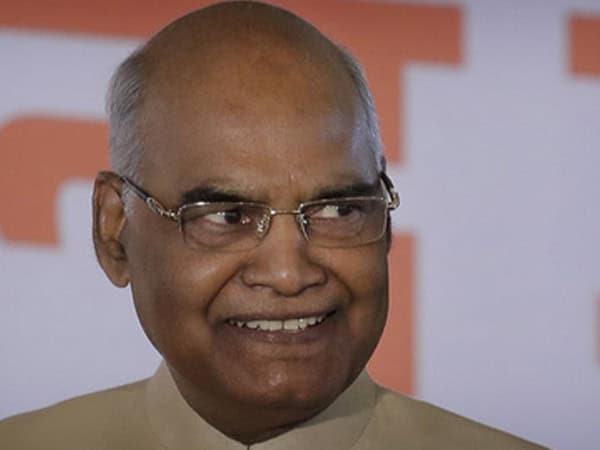New Delhi: President Ram Nath Kovind said on Monday that the government was working to reform labour laws and create a favourable business environment in partnership with the states.
In his customary address to a joint sitting of both the Houses of Parliament marking the start of the Budget Session, the President said India’s growth rate remained impressive despite global economic slowdown as the government has taken up “strengthening of financial institutions on priority”.
“During the first quarter of 2016-17, the economy witnessed a temporary slowdown in GDP growth. The second quarter of 2017-18, however, has seen a reversal of this trend.
In the last three-and-a-half years, the rate of inflation as well as government’s fiscal and current account deficits have, on an average, shown a decline,” the President said.
He said minimum wage of workers has increased by more than 40 per cent and the number of registers for compliance of labour laws has gone down from 56 to five.
“Our workers play a central role in nation building. Sensitive towards safeguarding their interests, my Government is continuously working for reforms in labour laws,” he said.
He said that foreign exchange reserves have risen beyond $410 billion in 2017 and policies adopted by the government have contributed to an increase in Foreign Direct Investment from $36 billion to $60 billion during the last three years.
The President said that ‘Aadhaar’ has helped in securing the rights of the poor by eliminating middlemen and digital payments were being made in over 400 schemes. “Till now, more than Rs 57,000 crore have been prevented from going into the wrong hands.”
Referring to the power sector, he said increase in power generation capacity has exceeded the target for the first time and “India has become a net exporter of power.”
The President said 1,428 obsolete laws have been repealed as part of efforts to simplify procedures and the government was striving to institutionalise honesty and develop transparent systems in the country to “achieve robust and inclusive development.”
He termed the Goods and Services Tax as the biggest tax reform since Independence and said it was aimed at achieving economic integration.
Kovind said National Anti-profiteering Authority has been formed to see that benefits of lower prices of goods and services are passed on to the consumers.
He said the government is committed to revitalise the banking system and to make it transparent and had decided to recapitalise the public sector banks by infusing more than Rs 2 lakh crore of capital in them.
“Our fight against corruption continues. Towards this end, registration of about 3.50 lakh dubious companies has been cancelled in the last one year,” he said.
He said E-market place has been created and steps have been taken to give preference to Make in India in public procurement.
On the country moving from 142nd to 100th rank in the Ease of Doing Business rankings, he said this had improved India’s credibility in the global market.
He said the government was implementing schemes for strengthening economic democracy in the country. “Under the ‘Jan Dhan Yojana’, so far, about 31 crore bank accounts have been opened for the poor,” he said.
Under the ‘Pradhan Mantri Mudra Yojana’, about 10 crore loans have been sanctioned so far and more than Rs. 4 lakh crore worth of loans have been disbursed.
Noting that India is youngest among all nations in the world, he said the government is implementing programmes like Start Up India, Stand Up India, Skill India Mission to provide self-employment to the youth.
He said investment in Railways for capacity development and modernisation is being enhanced and ‘Bharatmala’, an ambitious programme for development of highways, has been approved with a provision of Rs 5.35 lakh crore.
He said UDAN scheme has been started to provide air connectivity to smaller cities.
The president said government has ensured power availability to states at cheap rates by completing work on the ‘One Nation, One Grid’.
He said schemes worth Rs. 1.5 lakh crore have been implemented to strengthen the power distribution network.
“Mission to save electricity and efforts to increase electricity production are moving hand in hand. In last three years, solar energy generation has increased by seven times,” he said.
IANS

